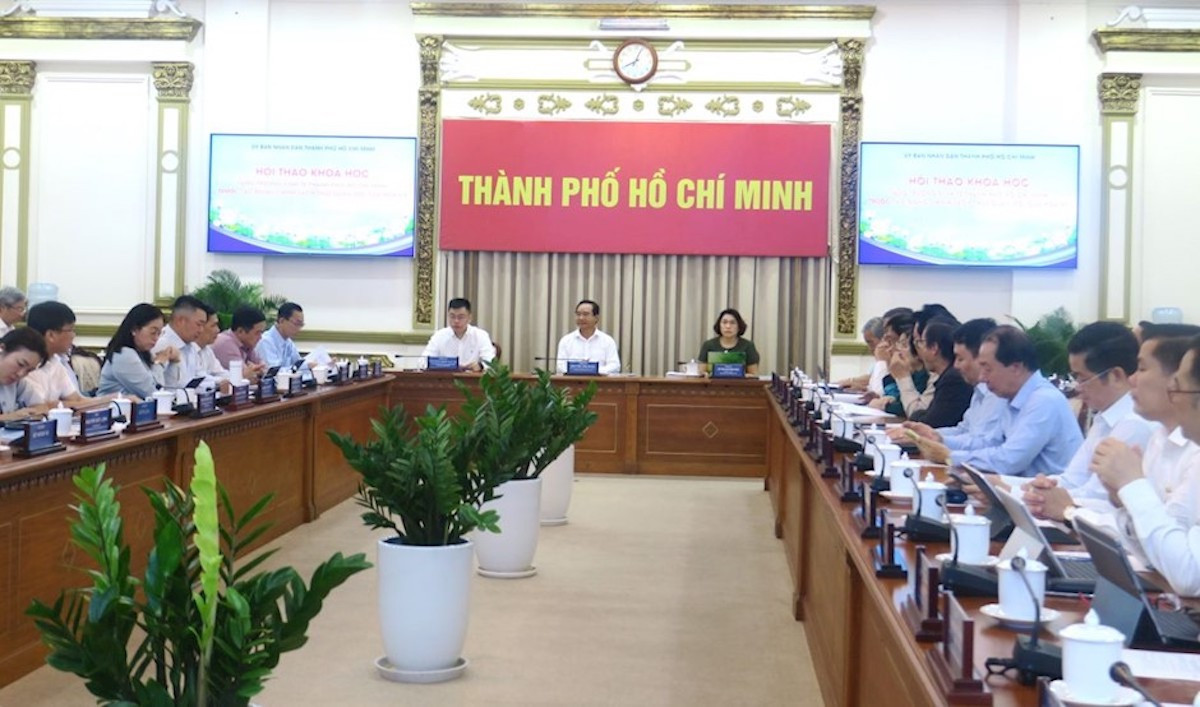
On April 9, the Ho Chi Minh City People’s Committee held a scientific conference titled “HCMC’s economic growth amid the impact of the US's new tariff policy,” gathering insights from economists and business representatives to identify coping strategies.
According to Bui Ta Hoang Vu, Director of the municipal Department of Industry and Trade, HCMC’s exports to the US in 2024 have reached USD 7.4 billion, up 24.3% compared to last year. In the first two months alone, exports stood at nearly USD 1.4 billion, marking a 37% year-on-year increase.
Out of 24 major export categories to the US, four key sectors will be heavily impacted by the 46% tariff: textiles and footwear, wood and furniture, seafood, and electronics and components.
Vu noted that if the US imposes a 46% tariff, HCMC’s export goods could see prices rise by nearly 50%, losing their competitive edge against other countries. In the short term, businesses may be forced to reduce export volumes or suspend shipments to the US entirely. Export turnover to the US is expected to decline over the next six months.
Truong Minh Huy Vu, Director of the HCMC Institute for Development Studies (HIDS), emphasized that key export items will face reduced competitiveness compared to rivals like India (26%) and Thailand (37%). Foreign direct investment flows may also be affected.
If the countervailing duty is reduced to 25%, or ideally between 5% and 15%, and negotiations secure exceptions for strategic products, Vu believes businesses will be more proactive in expanding their markets.
Regarding the city's growth forecast for the year, HIDS has proposed three scenarios to the municipal government based on potential US tariff rates. These assume HCMC will actively strengthen its internal economic drivers through investment and consumption.
Commenting on Vietnam's proposal to reduce US import tariffs to 0%, Professor Nguyen Trong Hoai, Vice President of the University of Economics HCMC, deemed it a timely move.
“If both countries drop tariffs to 0%, consumers will benefit, though the government won’t collect taxes,” Professor Hoai said.
As for countermeasures, he suggested that in the short term, the city should listen to businesses’ challenges and offer support. In the long run, enterprises need to diversify export markets, while the city should promote public investment, especially in transportation infrastructure, to reduce logistics costs and enhance export competitiveness.
Chairman Nguyen Van Duoc of the HCMC People’s Committee called for calm among businesses in response to the 46% countervailing duty. He emphasized that the tax hike would not only impact domestic companies but also many existing and potential foreign investors in the city.
He encouraged viewing the situation from a positive angle, rather than being overly pessimistic. Exports to the US account for only a portion of Vietnam’s global trade. The country still offers many irreplaceable products in the US market. This is an opportunity to restructure the economy and shift towards “Made by Vietnam” industries.
Duoc affirmed that the city is committed to standing by businesses facing difficulties in market expansion. In addition to offering preferential loan programs, HCMC will restructure its trade promotion center to better connect local firms with international partners.
Anh Phuong - Ho Van